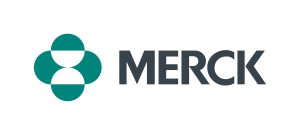In a groundbreaking move, pharmaceutical giants Merck and Daiichi Sankyo have joined forces in a $5.5 billion deal to collectively develop three potential cancer treatments. This collaboration holds the promise of a staggering $22 billion for Daiichi Sankyo if these innovative cell-targeting therapies prove successful.
Following the announcement, Daiichi Sankyo's shares surged by an impressive 14.4% in Tokyo, marking their most significant increase in nearly a year. Merck also experienced a notable rise of 1.6%.
With a bold vision in mind, Daiichi Sankyo aims to generate a remarkable $6 billion in oncology revenue by the end of the fiscal year on March 31, 2026. This ambitious target represents a five-fold increase over the course of just three years, signaling a clear intent to revolutionize the field of oncology.
Healthcare analyst Tina Banerjee emphasized the substantial impact of this deal on Daiichi Sankyo, characterizing it as a "big positive and much needed" boost for the company. She further stated that this collaboration significantly elevates expectations for Daiichi's oncology drug pipeline. Daiichi Sankyo's CEO, Sunao Manabe, acknowledged the intensifying competition in ADC development and highlighted the strategic importance of the partnership with Merck.
Importantly, the three antibody drug conjugates (ADC) that Merck is working on are now in different stages of clinical trials, which show that they might be able to fight a lot of different types of solid cancer tumors. Notably, ADCs are designed to primarily target and destroy cancer cells, potentially minimizing harm to healthy cells compared to traditional chemotherapy.
Both companies see enormous commercial potential in the ADC candidates: patritumab, ifinatamab, and raludotatug deruxtecans. It is anticipated that by the mid-2030s, each of these treatments could yield multi-billion-dollar worldwide revenue for both partners.
Under the terms of the agreement, Merck gains global development and potential commercialization rights for the drug candidates, with the exception of Japan, where Daiichi Sankyo will hold exclusive rights and handle manufacturing and supply.
This collaboration marks a significant milestone for Merck, providing them access to one of the leading experts in the ADC field. It also offers a strategic expansion of Merck's cancer medicine portfolio, particularly as patents for their flagship drug, Keytruda, are set to expire by the end of the decade.
In terms of money, Merck will give Daiichi Sankyo a $4 billion upfront payment and an additional $1.5 billion over the course of two years. Future sales milestones could potentially see Merck paying up to $16.5 billion, or $5.5 billion per product.
While Merck anticipates a pretax charge of $5.5 billion, or $1.70 per share, affecting their fourth-quarter and full-year 2023 results, the long-term prospects for both companies appear exceedingly promising.
With immense potential for both parties, this collaboration holds the key to unlocking groundbreaking advancements in oncology for years to come.























